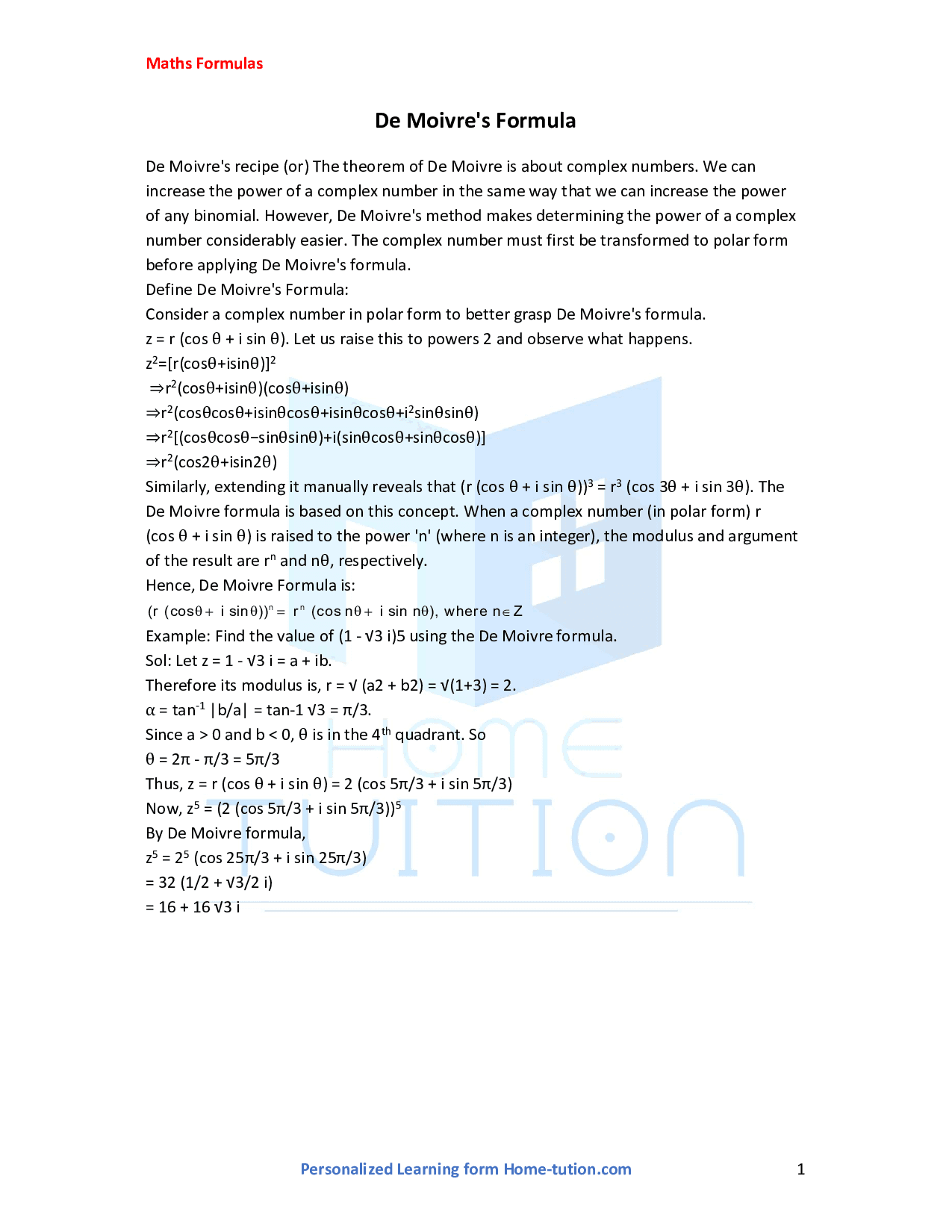About De Moivre's Formula
De Moivre's recipe (or) The theorem of De Moivre is about complex numbers. We can increase the power of a complex number in the same way that we can increase the power of any binomial. However, De Moivre's method makes determining the power of a complex number considerably easier. The complex number must first be transformed to polar form before applying De Moivre's formula.
Define De Moivre's Formula:
Consider a complex number in the polar form to better grasp De Moivre's formula.
z = r (cos θ + i sin θ). Let us raise this to powers 2 and observe what happens.
z2= [r(cosθ+isinθ)]2
⇒ r2(cosθ + isinθ)(cosθ + isinθ)
⇒ r2(cosθcosθ + isinθcosθ + isinθcosθ + i2sinθsinθ)
⇒ r2[(cosθcosθ − sinθsinθ) + i(sinθcosθ + sinθcosθ)]
⇒ r2(cos2θ + isin2θ)
Similarly, extending it manually reveals that (r (cos θ + i sin θ))3 = r3 (cos 3θ + i sin 3θ). The De Moivre formula is based on this concept. When a complex number (in polar form) r (cos θ + i sin θ) is raised to the power 'n' (where n is an integer), the modulus and argument of the result are rn and nθ, respectively.
Hence, De Moivre Formula is:
(r(cosθ + isinθ))n = rn(cosnθ + isinnθ),where n∈Z
Example: Find the value of (1 - √3 i)5 using the De Moivre formula.
Sol: Let z = 1 - √3 i = a + ib.
Therefore its modulus is, r = √(a2 + b2) = √(1+3) = 2.
α = tan-1 |b/a| = tan-1√3 = π/3.
Since a > 0 and b < 0, θ is in the 4th quadrant. So
θ = 2π - π/3 = 5π/3
Thus, z = r (cos θ + i sin θ) = 2 (cos 5π/3 + i sin 5π/3)
Now, z5 = (2 (cos 5π/3 + i sin 5π/3))5
By De Moivre formula,
z5 = 25(cos 25π/3 + i sin 25π/3)
= 32 (1/2 + √3/2 i)
= 16 + 16 √3 i
